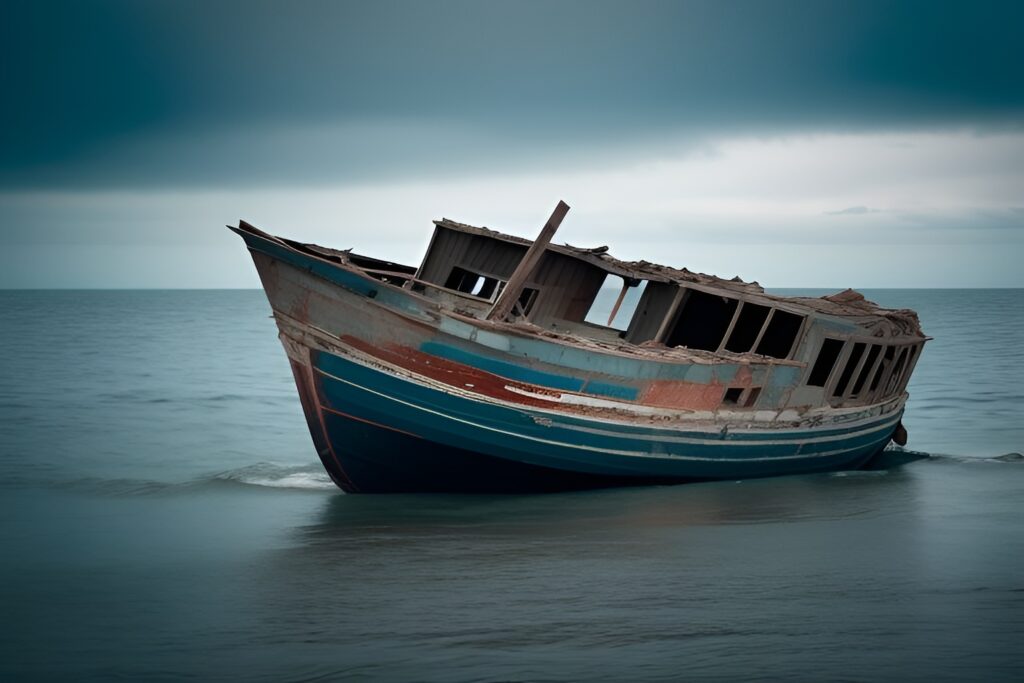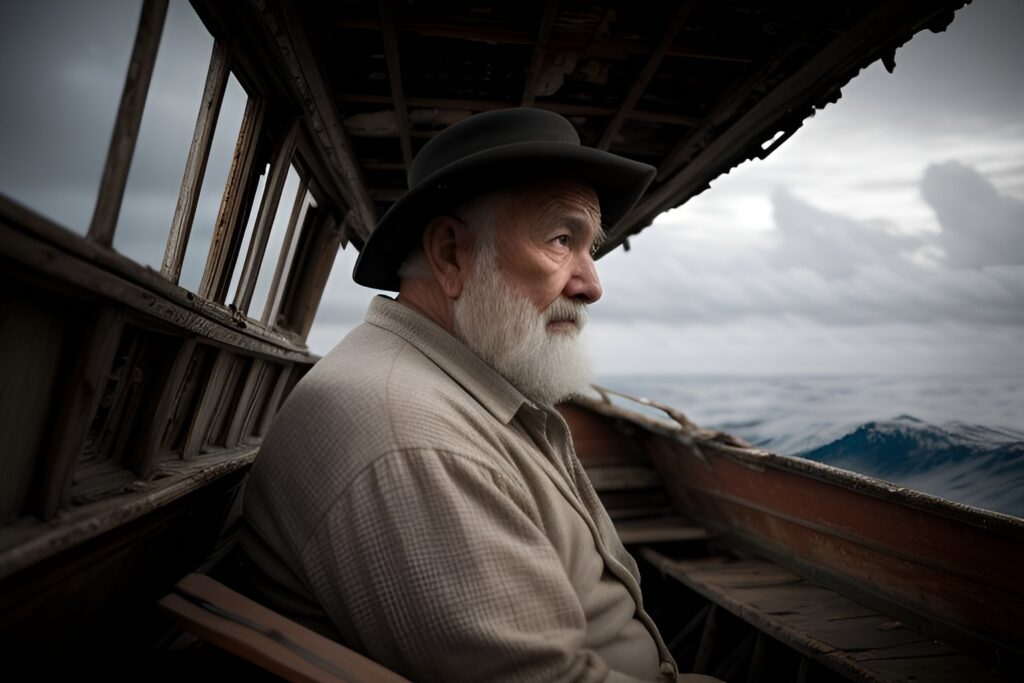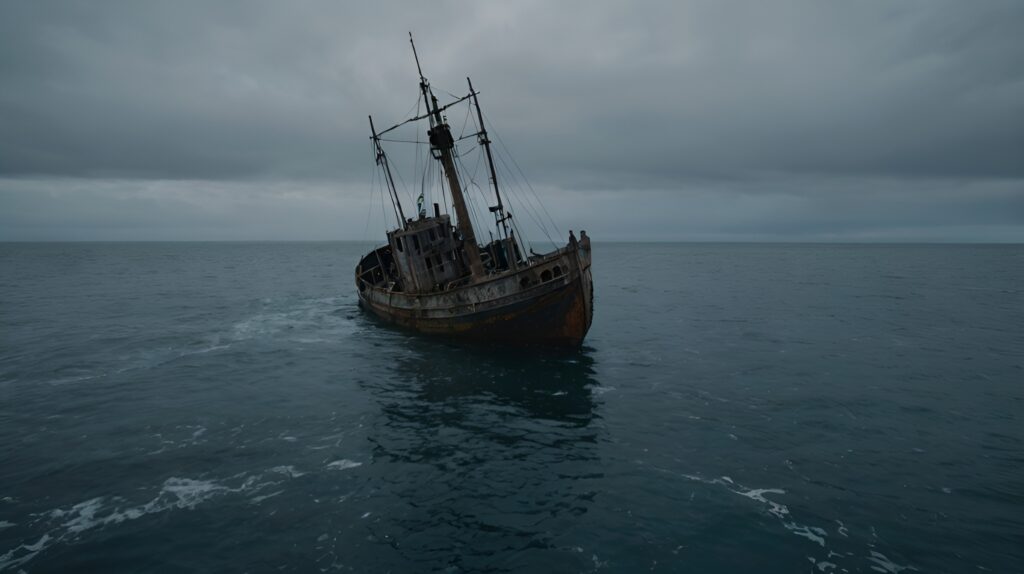The title of O’Neill‘s Thirst is multifaceted. Unlike the Elizabethan tragedies, the modern one act plays are entitled mostly depending on their subject matter. Thirst centers on the struggle of three shipwreck victims to survive on a small white raft adrift on a “glassy” sea. Descending into madness as a result of their thirst, they prey on each other until they sacrifice their humanity to the uncaring black-stained sea. Despite their common predicament the three are separated by social, as well as psychological forces. The title word ‘Thirst’ does not only signify urge for water but also thirst for rescue, life and meaning the meaning of the very existential struggle of the three characters.
The play opens with three passengers, the Gentleman, the Dancer, and a Mulatto sailor, stranded on the sea and drifting aimlessly on a life raft (ironically the forbearer of death) after a ship crash. The Gentleman and the Dancer represent the upper class white world, while the Sailor, a mulatto, represents the lower class, and obviously nonwhite world. The Gentleman and the Dancer are materialistic, having been more concerned with saving their worldly goods – a wallet and a diamond necklace, respectively – than with their own survival, while the sailor’s own concern is saving his life. The three characters are bound with a common thread – thirst. The story of mistrust is there hovering as the three figures gradually transforming onto the death figure owing to hunger, thirst and devastated hopes. Only in the hallucination, they see the green island with crippling stream, the saving boat etc.Hopes are dashed into the field of actuality as no water, no rescuer arrives, and only the silence and scorching sun remains. We can locate their frustrations in their speeches. Suffering as a secular equivalent to the idea of Original Sin, the inevitable outcome of the human condition. Dancer cries, “Oh, this silence! I cannot bear this silence. Talk to me about anything you please but, for God’s sake, talk to me! I must not think! I must not think!”

Long before they became thirsty for water and life in actuality, they had been thirsty for mundane success. The dancer who was of greater hope for a better life dreamt of a success after a struggling career. On the other hand the Gentleman was thirsty for home return and the Sailor probably for a great voyage. But in turn their thirsts are not satiated and they are hurled down into another kind of thirst; thirst for biological needs – thirst for water, food and life. The dancer offered the Mulatto her necklace for the sake of water. Like Salome, she danced as she has danced for the noblemen millionaire and all degrees of gentlemen. She even proclaims: “I have never loved any of them as I will love you”. In order to quench her thirst she is cheapening her honor. However, her attempts fail and she dies a pathetic death. Yet again, there are hints of something further. Thirst reveals clearly that O’Neill is moving toward an understanding of what he meant by “an ironic life force.” In Thirst, it is clear; the sea somehow controls the destinies of the castaways. The sun that parches them is likened to “the great angry eye of God,” a symbol of destiny. The tendency to personify the sea’s force revealed in Fog is made even clearer in Thirst. The image of the eye of God, owing something, perhaps to Stephen Crane’s red sun pasted in the sky like a wafer, to Conrad, and certainly to Coleridge, suggests that O’Neill seeks theological explanation of man’s destiny in the personification of natural forces. The sea’s heat drives the Dancer mad; the Gentleman, the most civilized of the trio, fights the elements that seek to control him; the Mulatto sailor (a role played by O’Neill in the play’s only recorded production) accepts his lot and is content to drift with the sea, taking what comes. He dies because the Gentleman attacks him and both fall overboard.
In their desperation, both the Gentleman and the Dancer cry out to a God who, if he exists, apparently has turned a deaf ear to their predicament, while the Sailor has found in his natural surroundings a source of strength and belonging on the raft as he sings his charms to the sharks. In fact, the Dancer’s first words are “My God! My God! The silence is driving me mad!” She continues to cry out and invoke her Christian God’s name throughout her ordeal, doing so six more times before insanity and dehydration claim her. The gentleman is likewise connected to his deity, calling out God’s name twelve times while he deteriorates beneath what O’Neill calls in his opening and closing stage directions, “a great angry eye of God.” The indifference of God to man’s suffering reminds us of Lucky’s angry complaint: “Given the existence as uttered forth in the public works of Puncher and Wattmann of a personal God quaquaquaqua with white beard quaquaquaqua outside time without extension who from the heights of divine apathia divine athambia divine aphasia loves us dearly with some exceptions for reasons unknown but time will tell….”
The thirst of the three character is never satiated and they have met their death one by one. Apparently, O’Neill’s God is not uninterested. It is the universe that is indifferent, while God remains a force that is very much alive, although apparently very displeased with his creation. For the Sailor, the sharks, representative of his own mythology, are ever-present and able to be appeased through his song: “It is a charm. I have been told it is very strong. If I sing long enough they will not eat us.” Thus the title of the play is just as it encompasses a wide range of symbolic significance related brilliantly to the play.





